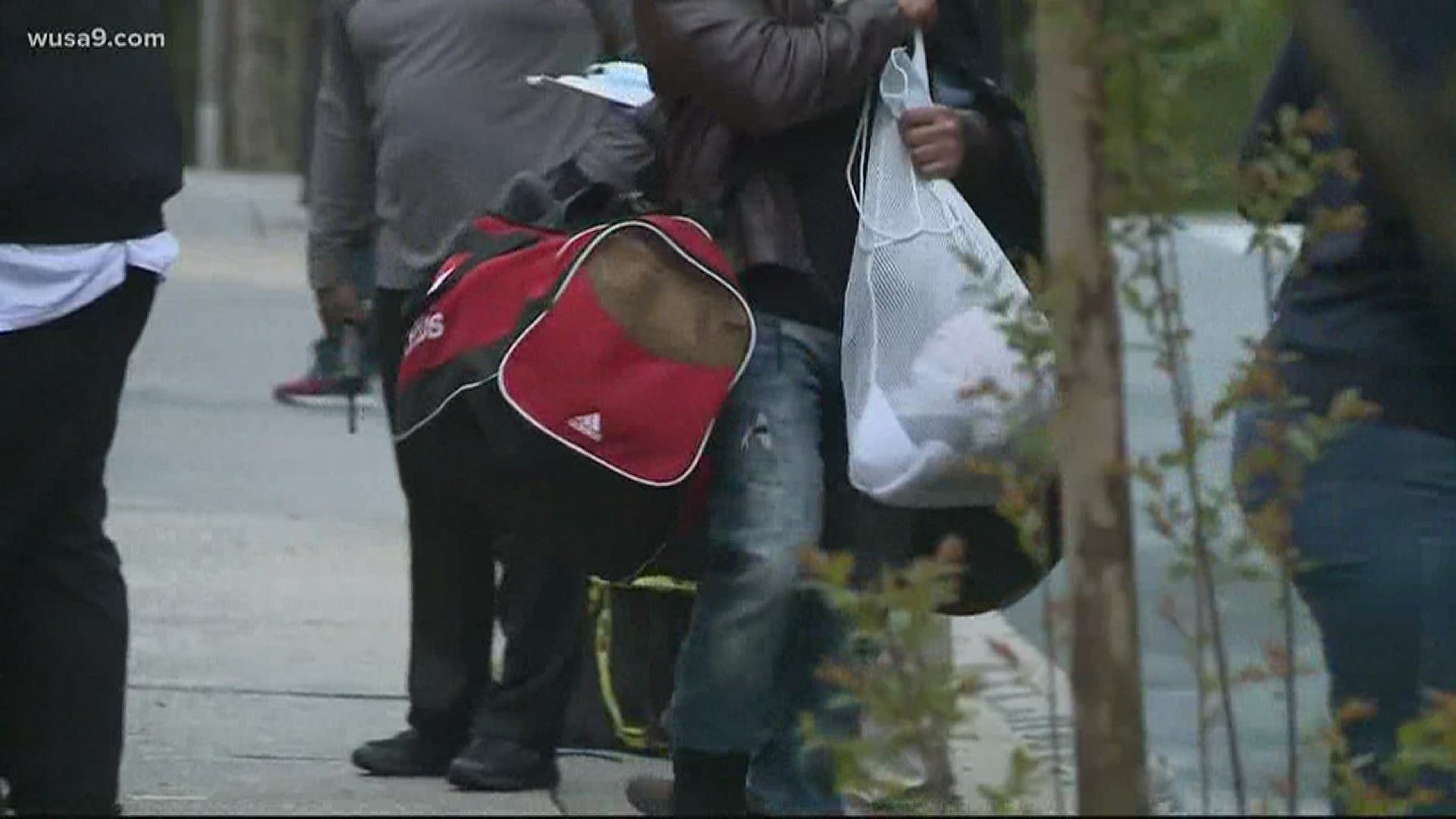WASHINGTON — Thirty-one men who were in custody at D.C.’s Hope Village halfway house were moved to Baltimore Monday. A bus arrived at the Southeast facility early in the morning to transfer the prisoners to Volunteers of America Chesapeake Residential RE-Entry Center.
A source inside Hope Village told WUSA9 the men are homeless and could not be released to home confinement in D.C. Hope Village is set to close for good April 30.
On Friday, April 24, a judge issued an emergency order that the men be released to home confinement. The move followed a class action lawsuit filed April 2 by the Washington Lawyers’ Committee and the ACLU. The suit alleged the nearly 200 men inside Hope Village were kept in dangerous, cramped conditions that did not allow safe social distancing practices amid the COVID-19 pandemic. The community staged several protests outside the facility after residents took to social media to complain about conditions inside. D.C. investigators checked out the facility and reported it had ample sanitary supplies for the men.
According to the Bureau of Prisons, there is no COVID-19 outbreak at the facility. However, the causes of two recent deaths are under investigation.
The halfway house has been operating for 42 years in D.C. It is the only men's halfway house in D.C. and the largest in the county. Its current contract with the BOP expires April 30.
As of Monday, the BOP had not identified another suitable facility in D.C., so there was no timetable on how long the homeless D.C. residents would be living in the Baltimore halfway house, or what happens to men being released from prison. But a BOP spokesperson said, "The BOP continues to pursue other options for services in the Washington, DC area following April 30th."
According to the BOP, 151 of the men will stay local and have been released to home confinement in D.C. Congresswoman Eleanor Holmes-Norton has been a fierce critic of Hope Village.
"Because I fought, 80% of the men are staying local, but I will fight to get the men in Baltimore back to D.C., where we can make it possible for them to be part of this community," she said.
The Congresswoman sent a letter to the BOP asking for an immediate response in writing. Here complete letter reads as follows:
Dear Director Michael Carvajal:
I understand that, because Hope Village, the men’s halfway house in the District of Columbia, is ending its contract with the Federal Bureau of Prisons (BOP) at the end of this month, BOP is working to transfer 30-40 residents without homes to a halfway house in Baltimore, possibly as early as today. We appreciate that our work with you has resulted in placing most of these men on home confinement in the District. However, as I have written before, housing D.C. residents outside the District is completely unacceptable. Sending these men outside of the District defeats the purposes of halfway house reentry: to accustom these inmates to living outside of an institution; to ensure access to relatives and friends, the only proven way to reduce to recidivism; and to allow inmates to easily be in touch with D.C. organizations and agencies primed to assist with such matters as obtaining a driver’s license.
I further understand that the D.C. government has offered its assistance to work with BOP to provide housing in D.C. for these individuals. The District has indicated that there are housing options in the District available to these men at no cost to BOP. We believe BOP can use its funds to allow CORE DC, which will be monitoring residents placed on home confinement, to also monitor the individuals who do not have a home to return to.
Bear in mind that these inmates are virtually the only local inmates in federal facilities, yet they often have been in BOP facilities for many years, thousands of miles from D.C., with virtually no contact with family or friends.
If there is a concern that providing housing for free would somehow violate the Antideficiency Act, or some other appropriations rules prohibiting gifts, I believe this could easily be solved by classifying these individuals as being on home confinement, just as you have for the approximately 80-90% of Hope Village residents who are going to home confinement already. While alternative placement locations, such as a hotel, may violate current BOP rules concerning where an individual may go for home confinement, these rules can be amended under
emergency rulemaking authority to allow for alternatives in light of the pandemic. Allowing these individuals to stay in the District without violating appropriations laws would align with your existing statutory authorities.
These individuals need to be in D.C. now so that they can renew relationships with their families, friends, appropriate D.C. government agencies, and potential future or even current employers to help facilitate reentry. We are concerned that we have seen no plans for how or when these residents will return to D.C. when their confinement ends. Even if they are returned to D.C., their absence from the District would make it even more difficult for these individuals to find permanent housing when they are finally released. As your staff have explained, these individuals are likely still in halfway house placement now instead of home confinement precisely because they have been unable to confirm housing. The solution above would address these issues.
I ask that you not send these D.C. residents to Baltimore, away from their homes, and, instead work with the District to find a housing solution here in D.C. I further ask that you respond in writing immediately given the timely urgency of this matter.

